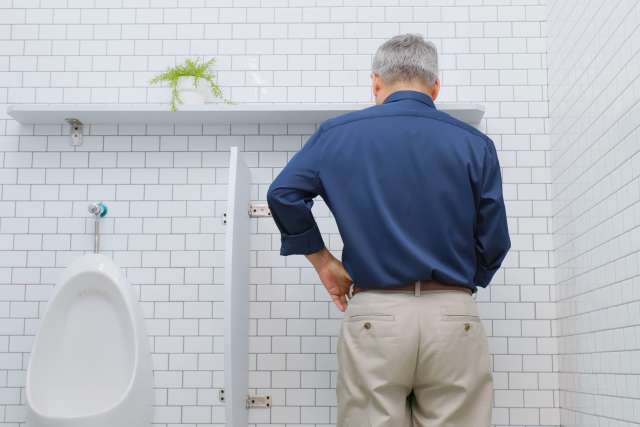No part of the body is immune to age-related changes. As you get older, you may experience some very noticeable — and often annoying — changes in how your bladder functions.
It’s not uncommon for older adults to spend more time in the bathroom. An overactive bladder becomes the norm for many.
While some bladder changes are a natural result of aging, there are habits that can make the problem better or worse.
How bladder function changes as you get older
There are several reasons why your bladder function changes with age.
The most significant change is that the bladder becomes less elastic. That means it’s no longer capable of holding as much urine as it used to. The loss of elasticity can also affect how well the bladder can empty when you pee.
Another change that can have you running for the bathroom is that the bladder contracts more frequently. When you’re younger, the bladder is stronger and more flexible, and your brain can more easily ignore these contractions. With age, the contractions increase and are harder to ignore.
Why do I suddenly have to pee more often?
The physical changes to the bladder make it less capable of holding urine effectively. As the bladder walls become less flexible, the bladder can no longer expand. So, it feels fuller more quickly — and needs to be emptied more often.
Typically, it’s considered “normal” to pee every three to four hours. Age-related bladder changes can increase that frequency. For men, having an enlarged prostate (also more common with age) can also increase how often you need to pee.
Medications can sometimes play a role in frequent urination. Drugs that can make you pee more often include:
- Antidepressants
- Antihistamines
- Calcium channel blockers (used to treat high blood pressure and heart disease)
- Diuretics
- Sodium-glucose cotransporter-w (SGLT2) inhibitors (used to treat diabetes and heart failure)
Common causes of urine leakage
Urinary incontinence is one of the most dreaded side effects of an aging bladder. You might find that you begin to leak urine when you laugh, cough, run or jump. Or you may experience such urgency to pee that you don’t always make it to the toilet in time.
Urine leakage can affect both men and women as they get older. The more frequent contractions of the bladder wall are like spasms that trigger the urinary sphincter to relax. This is similar to turning on a faucet. And if the sphincter relaxes too quickly, you may leak urine.
In women, the urethra (the tube through which urine exits the body) changes with age. It can become shorter and the lining thinner, both of which can affect the urinary sphincter. Over time, these changes can make it difficult for the sphincter to close completely, resulting in more frequent leaks.
Habits that can reduce the symptoms of an overactive bladder
Some of these age-related bladder changes are beyond your control. But there are steps you can take to reduce how much those changes affect your daily life.
Habits that can help reduce the frequent urge to pee and urine leakage include:
- Avoiding foods and drinks that irritate the bladder: Alcohol, carbonated beverages, caffeinated drinks, spicy foods and chocolate can irritate the bladder and make you feel more urgency.
- Exercising regularly: Staying physically fit and active keeps your whole body — including your bladder — healthier.
- Maintaining a healthy weight: Carrying excess weight can add more pressure to your bladder, making it even more difficult to control your urine.
- Quitting smoking: Smoking can make bladder issues worse. It can also lead to coughing, which can trigger urine leaks.
- Strengthening your pelvic floor muscles: The pelvic floor muscles support the bladder and urethra. When they’re weak, you’re more likely to experience urgency and leakage.
When to see your doctor about bladder changes
You don’t have to accept bladder problems as an inevitable result of getting older. There are many treatments available for people experiencing frequent urination, urgency and incontinence.
Talk to your doctor about any changes to your peeing habits. They can help you decide if medication, pelvic floor therapy or other remedies can help.
